Filter by
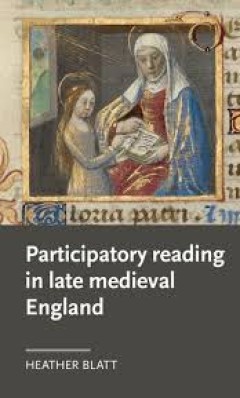
Participatory reading in late-medieval England
This book explores how modern media practices can illuminate participatory reading in England from the late-fourteenth to the early-sixteenth centuries. Nonlinear apprehension, immersion and embodiment are practices intimately familiar to readers of Wikipedia, players of video games and users of multi-touch mobile devices. But far from being unique to digital media, they have clear analogues in…
- Edition
- -
- ISBN/ISSN
- 9781526118004
- Collation
- -
- Series Title
- -
- Call Number
- 820.9001 BLA p
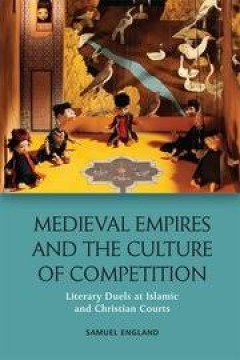
Medieval empires and the culture of competition: literary duels at Islamic an…
Shows how the interactive, confrontational practice of courtly arts shaped imperial thought in the Middle AgesA probing inquiry into medieval court struggles, this book shows the relationship between intellectual conflict and the geopolitics of empire. It examines the Persian Buyids’ takeover of the great Arab caliphate in Iraq, the counter-Crusade under Saladin, and the literature of soverei…
- Edition
- -
- ISBN/ISSN
- 9781474425223
- Collation
- viii, 230 pages ; 25 cm
- Series Title
- -
- Call Number
- 909.07 ENG m
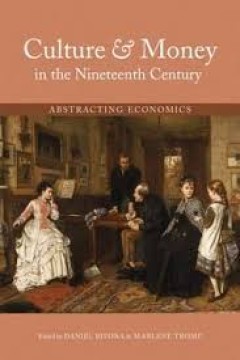
Culture & money in the nineteenth century: abstracting economics
Since the 1980s, scholars have made the case for examining 19th-century culture, particularly literary output, through the lens of economics. Bivona and Tromp have collected contributions that push New Economic Criticism in new directions.Spanning the Americas, India, England, and Scotland, this volume adopts a global view of the cultural effects of economics and exchange. Contributors use the …
- Edition
- -
- ISBN/ISSN
- 9780821421963
- Collation
- viii, 230 pages ; 24 cm.
- Series Title
- Series in Victorian studies
- Call Number
- 306.009034 BIV c
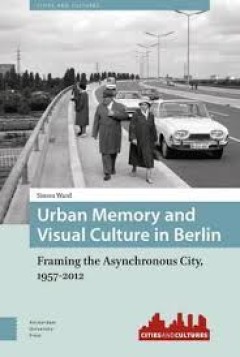
Urban memory and visual culture in Berlin: framing the asynchronous city, 195…
As sites of turbulence and transformation, cities are machines for forgetting. And yet archiving and exhibiting the presence of the past remains a key cultural, political and economic activity in many urban environments. This book takes the example of Berlin over the past four decades to chart how the memory culture of the city has responded to the challenges and transformations thrown up by th…
- Edition
- -
- ISBN/ISSN
- 9789089648532
- Collation
- 212 pages : illustrations; 24 cm.
- Series Title
- Cities and cultures
- Call Number
- 153 WAR u
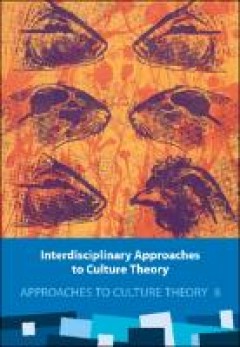
Interdisciplinary Approaches to Culture Theory
The central theme of the volume is interdisciplinary experimentation. The volume includes collaborative and interdisciplinary studies on a variety of topics, from territorialisation of theory, relations between culture theory and research methodology, culture-dependent meaning formation, power relations in discourses on religion, communal heritage management, celebration practices of (national)…
- Edition
- -
- ISBN/ISSN
- 9789949033041
- Collation
- -
- Series Title
- -
- Call Number
- 930.1 INT i
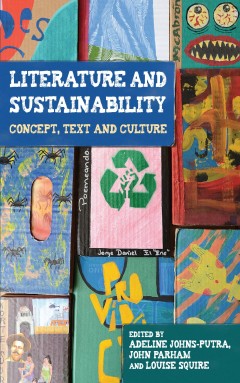
Literature and sustainability : concept, text and culture
Sustainability has become a key socio-political issue over recent years. However, whilst the literary-critical community has advanced enthusiastically on an exciting range of environmentally-based analyses (most obviously through the work of ecocriticism), its response specifically to sustainability—as an attempt to reconceptualise the way we live, as an idea with a particular history, and as…
- Edition
- -
- ISBN/ISSN
- 9781526107633
- Collation
- xvii, 253p. : ill
- Series Title
- -
- Call Number
- 823.0093553 LIT l
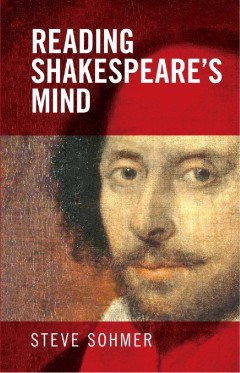
Reading Shakespeare's mind
This book shows that William Shakespeare was a more personal writer than any of his innumerable commentators have realised. It asserts that numerous characters and events were drawn from the author's life, and puts faces to the names of Jaques, Touchstone, Feste, Jessica, the 'Dark Lady' and others. Steven Sohmer explores aspects of Shakespeare's plays and sonnets that have been hitherto overlo…
- Edition
- -
- ISBN/ISSN
- 9781526113276
- Collation
- xii, 212p. : ill.
- Series Title
- -
- Call Number
- 822.33 SOH r
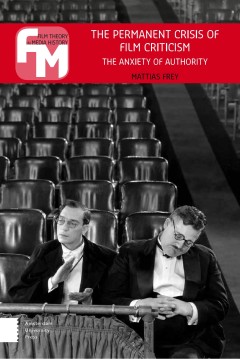
The permanent crisis of film criticism : the anxiety of authority
Film criticism is in crisis. Dwelling on the many film journalists made redundant at newspapers, magazines, and other 'old media' in past years, commentators have voiced existential questions about the purpose and worth of the profession in the age of WordPress blogospheres and proclaimed the 'death of the critic'. Bemoaning the current anarchy of internet amateurs and the lack of authoritative…
- Edition
- -
- ISBN/ISSN
- 9789089647177
- Collation
- 194p. : ill.
- Series Title
- -
- Call Number
- 791.4 FRE p
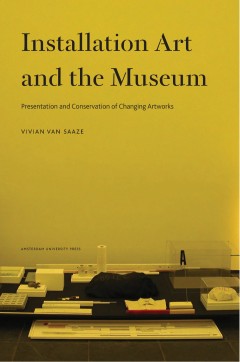
Installation art and the museum : presentation and conservation of changing a…
Installation art has become mainstream in artistic practices. However, acquiring and displaying such artworks implies that curators and conservators are challenged to deal with obsolete technologies, ephemeral materials and other issues concerning care and management of these artworks. By analysing three in-depth case studies, the author sheds new light on the key concepts of traditional conser…
- Edition
- -
- ISBN/ISSN
- 9789089644596
- Collation
- 225p. : ill.
- Series Title
- -
- Call Number
- 709.0407 VAN i
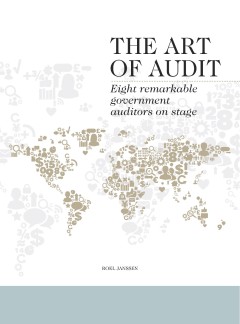
The art of audit : eight remarkable government auditors on stage
Accountability, good government and public trust are intricately linked. Supreme Audit Institutions fulfil an exceptional role in the public domain, checking if governments spend their money properly. They are like 'watchdogs' for citizens and parliaments with the purpose of auditing public expenditure and examining the effectiveness of policies. They aim to strengthen the trustworthiness of go…
- Edition
- -
- ISBN/ISSN
- 9789462980914
- Collation
- 103p. : ill
- Series Title
- -
- Call Number
- 657.835045 JAN a
 Computer Science, Information & General Works
Computer Science, Information & General Works  Philosophy & Psychology
Philosophy & Psychology  Religion
Religion  Social Sciences
Social Sciences  Language
Language  Pure Science
Pure Science  Applied Sciences
Applied Sciences  Art & Recreation
Art & Recreation  Literature
Literature  History & Geography
History & Geography